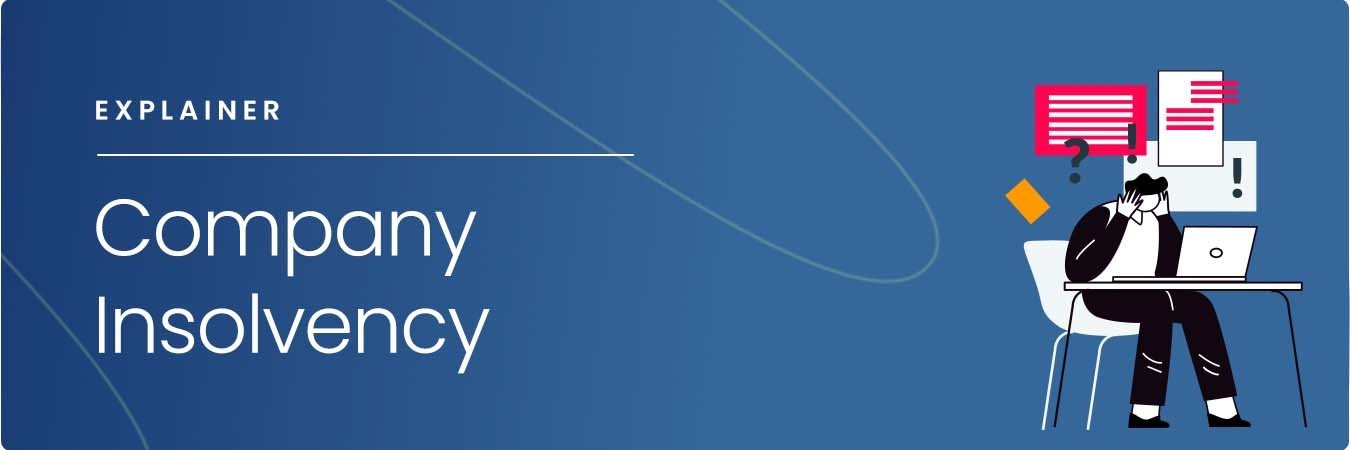The smart Trick of Insolvency Practitioner That Nobody is Discussing
The smart Trick of Insolvency Practitioner That Nobody is Discussing
Blog Article
Things about Insolvency Practitioner
Table of ContentsThe smart Trick of Insolvency Practitioner That Nobody is DiscussingThe 25-Second Trick For Insolvency PractitionerAll About Insolvency PractitionerOur Insolvency Practitioner DiariesUnknown Facts About Insolvency PractitionerInsolvency Practitioner - The FactsFacts About Insolvency Practitioner Uncovered
Personal bankruptcy is the procedure whereby a company is wound up and its properties are sold off to pay lenders. This is typically the last hope, as it can have an extremely negative impact on the business's online reputation. Receivership occurs when a business is not able to pay its financial debts and is positioned under the control of an external administrator.Voluntary administration resembles receivership, however it is launched by the supervisors of the firm instead than the financial institutions. This option is commonly made use of when a business is facing monetary troubles however there is still wish that it can be transformed around. Corporate insolvency is a complex and major issue that can have significant ramifications for services of all sizes.
Insolvency Practitioner - Truths
With the right aid, you can make sure that your organization has the most effective chance of weathering this difficult time.

Look after your staff members As an employer, you need to check and supply assistance to your employees during this stressful time. Be mindful of any type of possible health and wellness issues they might experience as a result of: work insecuritytransitioning through the sale of the businesschange in owners. You can: There are broadly 2 scenarios in which you would voluntarily shut your company.
9 Easy Facts About Insolvency Practitioner Explained
You additionally: don't intend to, or can not, sell the businesshave no-one to take it over. You're likely to have time to prepare your closure. This will certainly help you to: close efficientlymeet your legal obligationssave moneytake away maximum revenues. You may be shutting your business because: it's not covering its overheads and operating costsyou can not maintain the operating costs while trying to sell it.
This may prevent you from ending up being financially troubled or insolvent, and assist you to leave the service without any kind of durable influences. There are several things you require to resolve prior to closing your service. It is essential to have an exit technique. Your accountant, solicitor or business adviser will have the ability to aid you with this.

Not known Facts About Insolvency Practitioner
You need to finalise all tax concerns for your organization, also if it's no longer trading - Insolvency Practitioner. This includes your obligations regarding payment of: edge advantages taxpay-as-you-go (PAYG)superannuationemployment termination.
Bankruptcy occurs when your service can not pay its debts, which can result in your business shutting down. Different bankruptcy procedures apply to individuals and companies.
If you try to deal with it yourself, you'll require to communicate with every creditor individually to try to bargain routine repayment amounts. Insolvency or personal bankruptcy advisors can: assistance you via the processhelp you comprehend your optionsnegotiate with your lenders on your part. They hold specific licences and certifications in this specialized field.
Insolvency Practitioner Fundamentals Explained
It's essential to recognise financial trouble early so you can look at means to avoid insolvency. You should additionally be mindful of lenders placing enquiries or defaults against your credit score data.

What Does Insolvency Practitioner Mean?
Firm insolvency and liquidation An 'insolvent firm' is not able to pay its debts or cover article source the expense of its overheads. In some circumstances, insolvent firms may go into liquidation. Liquidation is when an independent licensed liquidator is designated to take control over the business and end up the company service in an organized means.
As kept in mind in the Introduction, while the report reveals certain choices relative to several of the more crucial of these options, it does not try to establish criteria in this complex location. It might need to be updated in the future to take right into account advancements in this area.
Everything about Insolvency Practitioner
Sonia Piccinini dedicated substantial time and initiative in the prep work of this magazine. The views revealed in the report are those of the IMF's Legal Department and must not be credited to the Executive Directors or the Administration of the IMF (Insolvency Practitioner). FRANOIS GIANVITI Recent experience has demonstrated the degree to which the lack of organized and reliable bankruptcy treatments can aggravate financial and economic dilemmas
Report this page